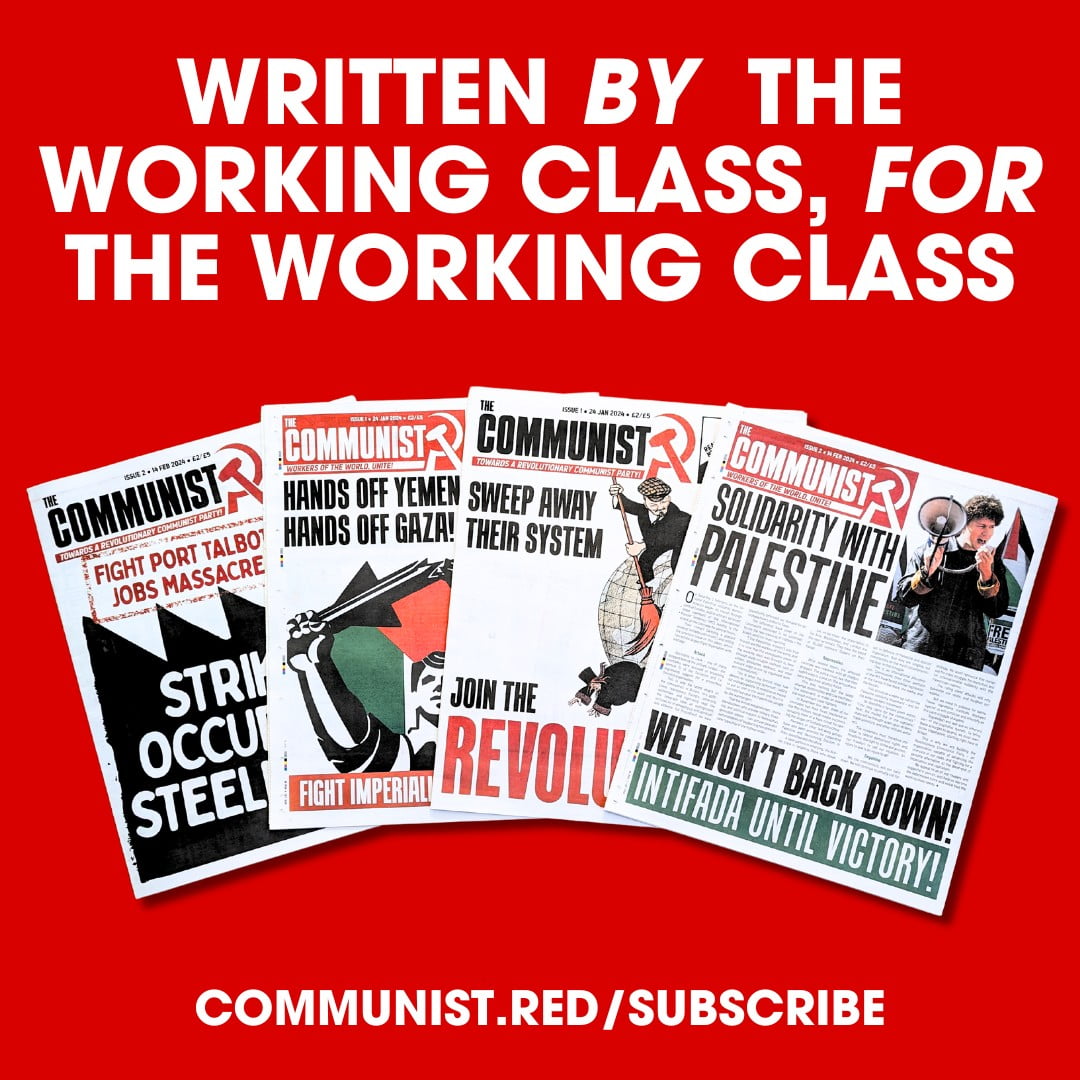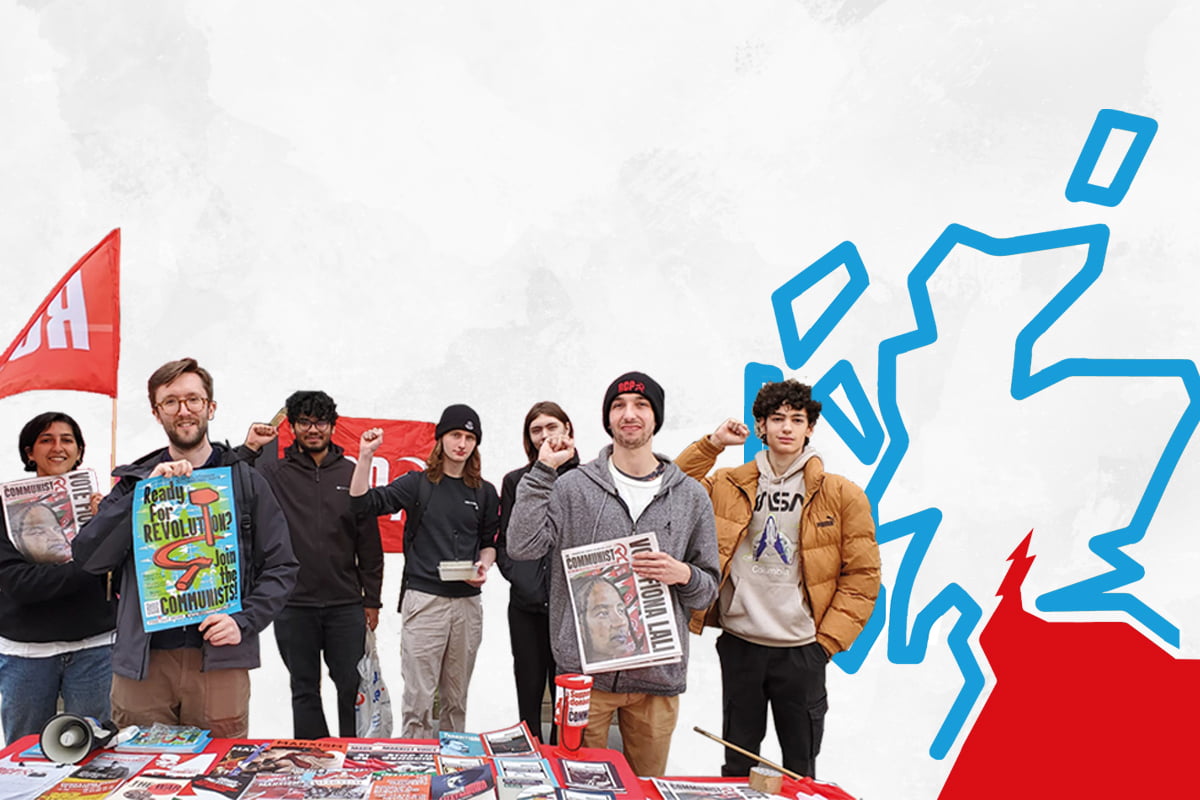 In last May’s Scottish
In last May’s Scottish
Parliament elections the Scottish National Party (SNP) emerged victorious as voters
wilted under increasing attacks and cuts in public services – already threadbare
after the Thatcher Tory years – by the New Labour-Liberal coalition. It was
against this background of increasing political frustration and disappointment
with the Labour-led administration that the SNP struck a chord promising what
appeared to be a radical, exciting series of policies to benefit working people,
pensioners, students and the majority of Scots. Socialist Appeal carried
in-depth Marxist analysis at the time (see marxist.com and socialist.net) when
we predicted an SNP victory and the factors that had made it possible. The New
Labour project led by Blair and Brown at a British level, had a significant
impact on the mood of Scottish voters at the last election. We were also
absolutely correct in predicting the disaster suffered by the sects as the six
Scottish Socialists lost their seats. For voters, who had decided not to vote
Labour, the choice before them was to vote for the big nationalist party who
could win, or the tiny independence supporting groups who had been clinging to
the SNP’s coat tails. The circumstances of the demise of this nationalist-reformist
group, was, in the end, somewhat bizarre as leaders fought each other in the
bourgeois courts over practically every issue except politics. Their short experiment
did achieve one major objective, however
– it helped the SNP to power. As
opinion polls had consistently shown for at least a year, the majority of Scots
were politically to the left of Labour, the Liberals and of course the Tories.
The Conservative Party in Scotland are a strange breed who would have been
completely wiped out had Proportional Representation (PR) not rescued them.
In the run up to the election the
SNP claimed, among other things, they would reduce class sizes in primary years
1-3 with a maximum of 18 children in each class, wipe out student debts, give
£2,000 to new house buyers, scrap the use of PFI in schools and hospitals,
renationalise the bus industry, replace the council tax with a fairer system,
abolish prescription charges, and reverse the decisions to close the Accident
and Emergency Departments at Monklands and Ayr Hospitals. These promises were
enough to secure victory for the SNP on what appeared to be progressive
policies favourable to ordinary Scots and their families.
In fact, within a very
short time in the pre-election campaign the nationalists quietly dropped their
commitment to renationalise the buses. Multi-millionaire Brian Souter, founder
of Stagecoach who owes his vast wealth to bus deregulation, had donated half a
million pounds to the SNP campaign. Souter isa born-again reactionary bigot who
led the campaign to keep Section 28 against ‘promoting homosexuality. In other
words he’s a homophobe. He has a disgraceful record in his treatment of his
employees, who seem to be in perpetual dispute with him, and is rabidly anti-trade
union. The Monopolies and Mergers Commission has described Souter as a ‘predator’
whose business methods are, ‘deplorable and against the public interest’
(Scotsman, April 23rd 2007). The SNP conference decision of 2006 to
take the buses back from the profiteers like Souter was popular and welcome.
When Souter reached for his wallet, all reference to re-regulating the bus
industry was removed from their website. Then we learned that business rates
were to be slashed.
In Monkland’s and Ayr
districts, SNP candidates stood in the election on a platform of ‘SNP – Save
the NHS’. Now we discover that ‘an independent panel is to investigate the
reasons given by the Health Trusts for closure’ (Observer, June 22nd
2007). The £2,000 grant to first time house buyers ‘cannot now be met’ while
‘the pledge to abolish student debts would not be honoured’ (The Telegraph,
November 16th 2007). The Telegraph correspondent went further,
writing, ‘What Swinney (SNP Finance
Minister) has got away with so far is mind-boggling.’ In relation to PFI – despite
giving the impression they would (as an administration) borrow money for
schools, hospitals and social housing at a lower cost with fewer risks than the
private sector – the SNP have decided to make local authorities responsible for
all matters relating to raising finance for public projects. In the same report
in The Telegraph the SNP are accused of ‘conning’ COSLA (the Convention of
Scottish Local Authorities). ‘COSLA weren’t so much cut down by Swinney as
conned’.
The SNP plans for
local authorities are potentially disastrous for Scotland and are straight out
of the Michael Hestletine/Norman Tebbit handbook on destroying councils and the
vital services they are legally required to provide. BBC news, November 15th,
reported, ‘Their (SNP) commitment to build thousands of social, publicly owned,
affordable new homes has been dumped onto local authorities who will decide on
the method of financing the projects.’ In other words, the SNP will force PFI
on councils and blame them for the failures.
By putting the onus on
councils to raise finances for social projects when they are starved of
funding, councillors will be concerned about surcharges and catastrophic consequences
leading to bankruptcy and removal from office. All socialists should be aware
of the events in the 1980s when socialist councillors, elected democratically,
were hauled through courts and removed from office by Thatcher for facilitating
house building to replace slums and trying to safeguard jobs. While claiming to
be against the use of PFI, the SNP are ensuring that there can be no
alternative to this madness and greed. This is not what the Scottish public
voted for and confirms the SNP as Tartan Tories!
Young people and students,
many of whom have been politicised by events in this generation, are rightly
disgusted by New Labour. Many turned towards the Scottish Socialist Party (SSP)
as a socialist alternative. There are many good socialists among these young
people who were misinformed, miseducated and ultimately misled in the most cynical
way by the SSP. It is entirely understandable in the circumstances why the
youth were drawn to the sects and even the idea that the SNP might provide an
answer to the problems faced by the Scottish working class. The SSP leaders,
who rejected Marxism and capitulated to Scottish nationalism, used these young
activists in a disgraceful way to protect their own important positions and damaged
the cause of class unity within the official organisations of the working class.
Members, especially youth, were fed a steady diet of sectarianism and as a
result lost confidence in the class struggle. They will now see how the SNP
will attack universities and further education colleges in Scotland. After
headlining their election campaign with a promise to write off student debt,
Swinney admitted in a verbal reply to a question in the Scottish parliament on November
14th, ‘This is no longer in our plans. It is a measure the SNP
cannot afford, quite honestly.’
The private sector and
big finance are already heavily involved in every area of our public services.
For years the SNP claimed they opposed this scandal – until now. All our
universities and colleges have been lost as publicly accountable institutions
and internal markets are established. Universities and further education
colleges need a minimum £168 million extra for the coming financial year,
according to the Scotsman, November 16th. The SNP budget has
allocated £30 million extra, a cut in real terms. ‘There are fears of
substantial job losses, or at least non-replacement of staff,’ says the
article, ‘(It) will also hit important research projects…’ The alarm bell
ringing among the working class is the signal for big banks and money men to salivate
like Pavlov’s dog. Dr Brian Lang, principal of St Andrews University has
demanded a return to tuition fees – abolished by the previous Scottish
Executive – and institutions be permitted ‘to raise their own funds by other
means.’ (Ibid). The abolition of tuition fees in Scotland was a welcome reform
and directly linked to the class issue. It came on the back of a steady drop in
the numbers of the poorest students, being unable to continue their education
because they could not afford to. Attempts to return to excluding working class
students from further education must be resisted. The SNP manifesto promise to
‘abolish student debts’ was a lie. One tabloid columnist has raised the spectre
of working class students being ‘excluded from further education’ and ‘postcode
influenced entry’. Places of learning will be unable to attract suitably
qualified staff and academics – many of whom could earn more money in the
corporate world but choose to make a financial sacrifice for the greater good.
There has been a steady increase in the use in some colleges of ‘lecturers’
whose qualifications are minimal. Invariably they are on short term contracts,
are not trade union members and work for less pay.
Since its birth in the
1920s, the overriding goal of the SNP has been independence for Scotland. For 4
decades it played no significant role in Scottish politics. It was a misty-eyed
romantic notion and predominantly appealed to the middle-class, notably farmers
and sections of the professional class, especially those who had no interest in
the unity of wage-earners – like policemen, small shopkeepers and lawyers. This
class had no need of organisations like the trade unions or labour movement. In
fact, their politics were opposed to organised labour. It is no coincidence
that nationalism in Scotland rose as a political force in the early 1970s,
exactly at a time when capitalism was in a slump. Even then, and in the sensational
1967 by election win by Winifred Ewing (a lawyer) in Hamilton, the SNP
positioned itself on the political left. The bourgeois press in Scotland has
always championed nationalism when there was any possibility of international
socialist ideas becoming popular among the masses. Ewing’s victory in Hamilton
(a safe Labour seat) followed Harold Wilson’s Labour government’s attempt to
reduce trade union influence and introduce wage restraints. When Margo McDonald
won Govan (in the heart of the Clyde’s shipbuilding district and another safe
Labour seat) in the early 1970s it too, was a protest vote. At no time in
modern political history have polls indicated that Scots want full independence.
One recent opinion poll by The Social Research Institute revealed only 23% of
Scots want independence – this at a time when the SNP have won their first ever
national election. What is true is that Scots want more powers for the Scottish
Parliament. The people of Scotland overwhelmingly oppose Trident. They resent
the £25 billion cost to renew and maintain these bombs on the Clyde and
consider the money could be spent more wisely. They are being told there is no
money for the NHS, education, housing, then see on the news that billions are
being spent on nuclear bombs. The SNP stood for scrapping the nuclear weapons
at Faslane, reflecting many voters’ opinions in the process. Now as the
‘Government of Scotland’ they have launched an online petition protesting
against the weapons!
This was all very well
while in opposition playing to SNP activists. They are now the Scottish Government.
Before the election, Salmond first said there would be a referendum on
independence in the first year of an SNP win. Then, seeing the opinion polls,
it changed to a referendum in the first four year term. Now there is to be what
is called ‘a national conversation’ involving the greens (two Members of the
Scottish Parliament) and any other interested parties!
Like everywhere else
in Britain, Scotland’s communities are dogged by social problems, unemployment,
mass drug addiction and poverty; the seeds of this destruction can be found in
the Thatcher years. Politicians are struggling to find a solution because under
capitalism there can be no solution. The catchphrase of the last 20 years has
been ‘law and order’ with daft schemes and initiatives led by half-witted
do-gooders, millionaires, churchy people and philanthropists – none of whom
would get out of bed for the minimum wage. Their answer to the drug problem is
to tell addicts, ‘Don’t do it!’ and a call for ‘more bobbies on the beat’. The
SNP promised 1,000 more officers on the beat if they were elected. What did we
get? Well, first of all, we were told that was not what they meant at all. What
they meant was they would free some of the police currently stuck in offices
and put them on the beat! In any event, you get the point – it is a hard task
to get 1,000 more police but the SNP will try their best! And it doesn’t seem
to have been noticed that probably 100% of all the bobbies who work in offices
are there by choice and desperate to remain there!
During the bitter
nursery nurse’s strike in Scotland a few years ago, the SNP leaders visited the
picket lines (mostly with a press photographer) and pledged unwavering support.
Their election manifesto seemed to indicate they were serious: ‘We will
increase by 50% the amount of free nursery education for 3 and 4 year-olds,’
announced leader Alex Salmond (SNP website – since removed). This has had to be
shelved because after their ‘Budget’ COSLA issued a press release stating that
the SNP were telling local authorities how they should spend their money,
causing friction. This has still to be resolved. COSLA leader, Pat Watters also
claimed local government had no money to cut class sizes, nor could they freeze
council tax at its current levels (Herald, November 19th).
Every manifesto promise
made by the SNP has been broken. The extent of their trickery now exposed for
all to see just seven months after the people of Scotland put their trust in
them to provide answers for the problems they faced. They have attracted deep
controversy in the parliament and among voters. In the future their plans to
run public services into the ground will come into collision with the organised
labour movement.
The labour movement in
Scotland must resist all the attacks on services that the SNP plan. They have
only a majority of one in the Scottish Parliament, ensuring a rough ride. But
it will not be the decisions made in the parliament that will be decisive in
the coming period, it will be the decisions and struggles of the workers,
organised in the trade unions and linked to the Labour Party that will force
the agenda from the grass roots. The next four years will see mass struggles
and campaigns for the working class and youth. The idea that socialists can
create an alternative outside the official labour movement has been proven to
be a dead-end, yet some are now seeking to build an SSP mark II. With the
adventure of the SSP and other alliances still fresh in worker’s memories, this
nonsense must be knocked on the head now. It has been tried and it did not
work. There is no shame in that – what would be shameful is if the lessons of
the last period were not to be learned.
See Ted Grant, Scotland – Socialism or Nationalism.






